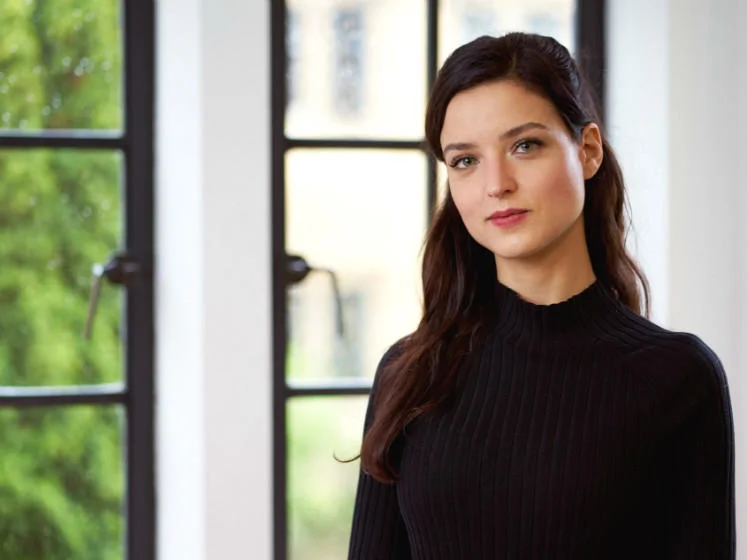Q&A with Julia Leschke
Investigating populism in political texts
Julia is a PhD candidate at the Department of Government
Approaches of modelling encounters are currently also being explored for research on how to reduce the spread of the virus causing COVID-19 in neighbourhoods.
Julia Leschke

What are you currently researching?
I am working on a method to measure populism in a range of political texts such as manifestos, legislative speeches and social media. I’m doing this using quantitative text analysis, natural language processing and machine learning.
Measuring populism can be tricky because it is such a malleable concept and parties use a variety of terms and vocabulary to refer to the same ideas, depending on their core ideology.
In another project, I scrutinise whether voters switch their allegiance from a radical right party to a more centrist right-wing party or vice versa, when they are spatially exposed to refugees on a daily basis. The model of encounter that I developed draws on spatial network analysis.
Such approaches of modelling encounters are currently also being explored for research on how to reduce the spread of the virus causing COVID-19 in neighbourhoods.
What attracted you to this area of research?
I have always been interested in understanding the mechanisms that form, shape and update people’s political attitudes – and I wanted to do this using new computational methods and approaches.
The use of social media by voters and politicians, as well as the increasing volume of digitised political communication, enables us to look at phenomena such as xenophobia, illiberalism or populism across time, countries, individuals and parties.
By using large amounts of data and automated methods, we can sometimes better trace and scrutinise trends, similarities and patterns which we wouldn’t be able to discern by simply reading every piece of text.
What have been the highlights of your PhD/research project so far?
I enjoy attending conferences or workshops and exchanging ideas with other researchers in my field. The PhD might at times seem like an impossible project, so it is always uplifting if your work is rewarded somewhere on the way. I am happy to have received the EUSA Ernst Haas Fellowship as well as support from LSE’s Knowledge Exchange and Impact Fund.
What has been your biggest challenge so far?
Often, the biggest challenge for me is accepting that there is simply no data available for what I want to research or that it takes too much time and resource to get the data in a shape to answer the research question. You often have to adapt your project or think of alternative data sources or ways to get research funding.
How will your research have a wider impact on society? Can you give some real world examples of the impact your research will have?
An example from my research that could be used to directly inform policy is my project on attitude formation after contact with refugees.
Using data on location and kind of refugee accommodation, I simulate how often voters in West Europe meet refugees in their daily lives and how the encounters between different groups drives voters to support either radical right or more moderate parties.
This can inform policy makers on how the concrete location or different kinds of refugee accommodation, can incite feelings of resentment or create feelings of acceptance towards refugees.
What do you hope to do career wise, long term?
I would be happy with a career that involves rigorous computational social scientific research, data and political attitudes. At the moment, I am open about how this looks. I would ideally like to stay in a research capacity, for example, as a researcher at a University. However, I don’t think that it hurts to keep your options open to pursuing a career in the private sector.